#captured on film..... emotional about vincent
Text
So the live action One Piece is really, really good.
I know, far from the first person to say it. But it really must be stressed how absolutely bonkers it is that One Piece, of all anime properties, is what breaks the live-action adaptation curse in the West. So many attempts at adapting far more live-action friendly stories like Death Note and Cowboy Bebop ended up complete disasters, and yet it's perhaps the most unabashedly cartoonish anime franchise, the one defined by how it takes advantage of drawing and animation to portray people, places and things that would be completely unfeasable in the real world, that shows how to translate this medium to live action without losing what makes it special in the first place. It's not a perfect adaptation, but it pretty much nails everything it needs to, capturing the heart of this story in all its most important moments and making smart changes that serve its new form as a binge-worthy Netflix drop. So let's talk about the things I liked, the few areas I think it fell short, and how I think future seasons should play out! Spoilers, obviously.
The Good:
-The most important thing to get right was the casting, and they nailed it: all the Straw Hats and their supporting cast are just about perfect. Inaki Godoy just is Luffy, Emily Rudd does a fantastic job shouldering the season's core emotional weight as Nami, Vincent Regan steals the show every time Garp is on screen, and Jeff Ward is an absolute riot as Buggy. Special shout-out as well to Morgan Davies for nailing Koby's expanded screen time.
-Speaking of, I love how Koby and Helmeppo's title-card story is fleshed out into a proper B-plot throughout this season. Following their journey under Garp's command is a perfect way to introduce us to the Navy's inner workings and the more explicitly political side of the story up front, as well as foreshadowing plenty of future story beats to come.
-The action. Is. So. Good. Thank god we're finally remembering how to film proper hand-to-hand brawls, cause every punch-up is a blast to watch.
-Luffy actually has more of an arc here than he does in the manga! Manga Luffy can be a pretty static character a lot of the time, which I know is kind of his appeal, but this adaptation gives him a bit more to work with as he grapples with the responsibility of being a captain and the consequences his mistakes can have for his crew.
-Seriously Buggy is so fucking funny they nailed him so perfectly
-Putting more of a focus on Nami's struggles throughout the season was a great way to give it more structure for a binge format. Her emotional journey is really the heart of this adaptation as we watch her go from a paraniod recluse to fully embracing the Straw Hats as her new family.
-One benefit to being live action and produced in America? Way, way less casual sexism. Dare I hope that future seasons will avoid ruining Sanji's character among other pitfalls Oda fell into? Fingers crossed!
-The production design is immaculate. It strikes the perfect balance between the wacky cartoonishness of One Piece's world and the demands of filming in live action.
-Fantastic soundtrack too! It knows just where to deploy instrumental renditions of We Are while charting its own musical identity.
The Bad
-Some of the dialogue is a liiiiiiittle cringey? I know dialogue has never been OP's strongest suit, but there are definitely a few moments that feel overly anachronistic and "how do you do fellow kids?" There's a moment Buggy jokes about toxic fandom that really made me roll my eyes (especially since the OP fandom has by and large really embraced this adaptation, so it comes off like a cheap shot at a demographic of haters that doesn't even really exist).
-While the camerawork and editing are pretty great, the color grading is very much... not. Can we please stop shooting everything in boring desaturated yellows and greys and start lighting our night scenes so we can actually see what's going on?
-Shockingly, it's the strongest parts from the manga- the backstories- that I feel suffered the most here. Some of that's due to most of the child actors not being that great, which, well, that's a risk you take with child actors. But it also cuts out a lot of the personal culpability that made a lot of those backstories so compelling? Like how Sanji used to be pretty wasteful with food until his experience stranded on an island taught him how important it was to respect every bite? That aspect of his character is completely missing in his flashback here.
-Hoo boy, they made some... choices with how they depicted Arlong's crew. I know the Fishmen are a big racism/discrimination metaphor, but between the trap music that plays whenever they show up, their overall "urban gangsta" fashion aesthetic and the design of Arlong Park, the fact Arlong himself is played by a black actor... there is some coding going on here, is my point. And considering how much I hated the direction this story arc went in Fishman Island, that does not give me confidence in this adaptation's ability to escape sucking just as much on that front.
Future Season Wish List:
Season 2: The Alabasta saga, starting with the arrival at Roguetown and ending with Vivi's send-off
Season 3: The Water Seven saga, maybe with a brief stop in Skypiea beforehand but not long enough to get bogged down in there like the manga did
Season 4: Possibly controversial, but I think this should take us to the timeskip. Spend an episode or two in Thriller Bark but cut out all the bullshit, one episode in Sabaody for the Shit Gets Real(tm) section, one episode in Amazon Lily, then onto Impel Down and the Marineford showdown, with one episode dedicated to the fallout of that battle and getting us to the timeskip.
Season 5: Big focus here should be Dressrosa IMO. If you must spend some time in Fishman Island then do it, probably don't need that much time in Punk Hazard since barely anything happens there, then get into the thick of Dressrosa.
Season 6: This should be the Wano season. One episode in Zou, maybe a couple in Whole Cake Island to set up Big Mom, (honestly we might not even need the extra Sanji backstory if this adaptation gets rid of his worst traits), then get straight into Wano so you have all the time you need for all those moving parts. Also, Gear 5 Luffy in live-action should just be him turning into his anime self Roger Rabbit style. Tell me that wouldn't rule.
30 notes
·
View notes
Photo
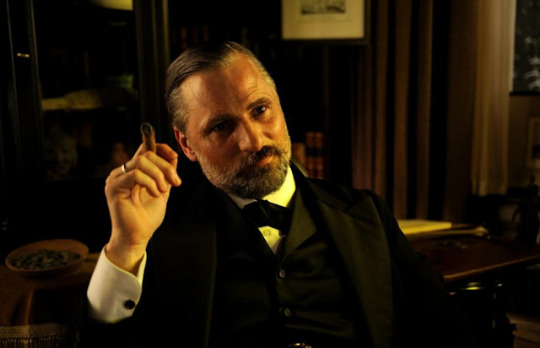
Viggo Mortensen in A Dangerous Method (David Cronenberg, 2011)
Cast: Michael Fassbender, Viggo Mortensen, Keira Knightley, Vincent Cassel, Sarah Gadon. Screenplay: Christopher Hampton, adapted from his play based on a book by John Kerr. Cinematography: Peter Suschitzky. Production design: James McAteer. Music: Howard Shore.
Sometimes, as Freud said, a cigar is just a cigar. And sometimes, as Viggo Mortensen, playing the man himself, demonstrates, a cigar is a prop that can help you win an acting contest. Because too often a costume drama based on a play becomes just that: a contest among actors to show who can come out on top, especially when the cast consists of actors like Mortensen, Michael Fassbender, Keira Knightley, and Vincent Cassel -- none of them exactly shy of showing what they can do before a camera. When I heard of it, I thought Mortensen was a decidedly off-beat choice to play the father of psychoanalysis, and he was in fact the second actor to be cast in the role, after Christoph Waltz, an almost inevitable choice, found he had a scheduling conflict. Mortensen had worked with director David Cronenberg twice before, but playing men of violent action in Eastern Promises (2007) and A History of Violence (2005), not a pre-World War I middle-European Jewish intellectual. And yet Mortensen gives a delicious performance as Freud: puckish, proud, intellectually combative. And the cigar helps, whether brandished elegantly or plugged defiantly in the middle of his face. By contrast, everyone else seems a little over the top. Fassbender (who was second choice after Christian Bale) is his usual handsome presence, but he frets a little too visibly and never quite establishes Jung as the challenger to Freud's authority that Freud seems to have thought him to be. Knightley acts the electrons off the screen as Sabina, almost popping out an eye and dislocating her jaw in her mad scenes, but recovers nicely in her later moments in the film. And Cassel, as the mad Otto Gross, takes his role to the extreme as the man who carries Freud's theories about repression to their logical extreme: Don't repress anything. Ever. The film's battle of ideas gets a little bit lost in all the emoting, and as so often happens in filmed costume dramas, the scenery and the sets capture the eye when the words should be capturing the mind. But Howard Shore's evocation of the melancholy side of Wagner's music is perfect for the era in which the film is set, the transition from 19th-century Weltschmerz into 20th-century bloodshed, a time when, as James Joyce punned, we were Jung and easily Freudened. Jung's prophetic dream of a bloody tide sweeping over Europe is cited in the film, as a warning that all of this intellectual (and sexual) palaver was about to be subsumed in war.
2 notes
·
View notes
Text
LA HAINE
“La Haine” is a 1995 French film, directed by Mathieu Kassovitz, This film is a captivating exploration of urban disturbance and social inequality in the suburbs of Paris.
"La Haine" is a powerful and impactful film that dives into the lives of three friends from different ethnic backgrounds Vinz, Hubert, and Saïd, as they navigate the explosive and belittle suburbs of Paris. This film takes place over the course of 24 hours following a violent incident involving the police, highlighting the simmering tensions and frustrations that exist within these communities.
One of the most powerful aspects of "La Haine" is its raw and gritty portrayal of urban life. Kassovitz's decision to film in black and white adds to the starkness and intensity of the narrative. The cinematography, with its use of long takes and handheld camera work, immerses the audience in the characters' experiences, capturing the sense of claustrophobia and despair that permeates their lives.
The performances in "La Haine" are outstanding, with Vincent Cassel, Hubert Koundé, and Saïd Taghmaoui delivering powerful and shading interpretations of their respective characters. Each actor brings depth and authenticity to their roles, capturing the complexities of their characters' struggles, frustrations, and aspirations. Their chemistry and friendship on-screen are striking, making their journey all the more compelling.
The film's screenplay, written by Kassovitz, is a masterful exploration of themes such as racism, police brutality, and the alienation of marginalized communities. Through sharp and amusing dialogue, "La Haine" raises important questions about social injustice and the cycle of violence perpetuated by systemic inequality. It challenges the audience to confront their own biases and preconceived opinions, urging them to reflect on the underlying issues that fuel unrest.
"La Haine" also stands out for its innovative use of sound and music. The film's soundtrack, featuring a mix of hip-hop, electronic, and classical music, enhances the atmosphere and emotions of each scene. The sound design, with its comparison of silence and explosive moments, adds to the tension and unease that pervades the narrative.
Beyond its technical and artistic merits, "La Haine" holds a significant socio-political relevance.
The overall rating is 6/10, Only because it's in black-and-white.
0 notes
Text
Final Post #3 Brody Feigin
The Evolution of Post-World War II Cinema: A Comparative Analysis of Neorealism, Directorial Influences, and Documentary Realism
Following World War II, cinema underwent significant transformations due to the era's socio-economic conditions and technological advancements. This essay examines three critical aspects of this evolution: neorealism as a response to postwar realities, the influence of prominent directors like Billy Wilder, Vincente Minnelli, and Satyajit Ray, and the emergence of documentary realism. By analyzing these elements through the lens of films such as "Bicycle Thieves," "Sabrina," and "Land Without Bread," we can determine which post-World War II change was most decisive in shaping modern cinema. Through comparative analysis, we aim to examine whether neorealism, directorial influences, or documentary realism profoundly impacted the cinema we see today.
After World War II, Italy faced a devastated economy, rampant unemployment, and rising poverty. Neorealism emerged as a significant cinematic movement that sought to portray the harsh reality of these postwar conditions. During this time, traditional Hollywood glamour and escapism failed to resonate with audiences who craved stories reflecting their experiences. Neorealism offered a departure from mainstream cinema by prioritizing realism and showcasing the struggles of ordinary individuals. Vittorio De Sica's "Bicycle Thieves" epitomizes neorealism through its narrative focus on the hardships of a working-class family. The film follows Antonio Ricci, a man desperately searching for his stolen bicycle, which is vital for his employment.
Exploration of the impact of neorealism on storytelling, characters, and cinematography
Neorealism revolutionized storytelling by shedding light on the human condition and exploring themes of poverty, social inequality, and despair. This shift inspired a character-driven approach and a focus on authentic locations, allowing audiences to empathize with the struggles depicted on screen.
Prominent directors such as Billy Wilder, Vincente Minnelli, and Satyajit Ray played crucial roles in shaping the post-World War II cinematic landscape. Wilder's witty dialogue and cynicism, Minnelli's visually stunning musicals, and Ray's introspective storytelling all left an indelible mark on the industry. Their innovative approaches to narrative structures challenged traditional storytelling norms and influenced subsequent generations of filmmakers. Whether it was Wilder's film noir style, Minnelli's use of technicolor, or Ray's representation of Indian society, these directors pushed boundaries in visual storytelling.
The introduction of widescreen and color technologies during the 1950s and 1960s revolutionized the cinematic experience. These advancements allowed for more expansive and visually captivating narratives. Wide aspect ratios immersed viewers in grand spectacles and engaging landscapes, while color enhanced the emotional impact of scenes. Billy Wilder's "Sabrina" provides a prime example of how these technical changes were utilized to elevate storytelling. The vibrant color palette and widescreen format added depth and allure to the romantic comedy genre. Audiences were captivated by the newfound visual splendor brought about by widescreen and color technologies. Consequently, the industry quickly adapted to meet the demand for more visually immersive experiences.
The 1960s witnessed a shift in documentary filmmaking towards more observational and participatory approaches. Documentary filmmakers sought to capture genuine situations and experiences, often leading to increased audience engagement and social impact. Luis Buñuel's "Land Without Bread" is an early example of documentary realism as it depicted the harsh realities of peasant life in rural Spain. Buñuel's documentary set the stage for future filmmakers, influencing their approach to storytelling and encouraging them to confront uncomfortable truths and challenge societal norms.
Neorealism fundamentally altered storytelling, emphasizing authenticity and relatability. Its influence can still be seen in contemporary films that tackle societal issues and human struggles. The distinctive styles of directors like Wilder, Minnelli, and Ray left an indelible mark on their respective genres and visual storytelling techniques. Their contributions continue to shape modern cinema.
Documentary realism challenged traditional notions of truth and inspired audiences to question societal structures. Modern documentaries continue to embrace this sense of realism and engage audiences in powerful ways.
While each change discussed significantly impacted post-World War II cinema, their combined influence led to the diverse and multifaceted cinema we see today.
Throughout post-World War II, cinema, neorealism, directorial influences, and documentary realism have played pivotal roles in shaping the medium. Among these changes, neorealism is the most decisive in influencing contemporary cinema due to its focus on authentic storytelling and portrayal of societal issues. The influences discussed in this essay continue to be relevant, with contemporary filmmakers drawing inspiration from neorealism, directorial styles, and documentary realism to create thought-provoking narratives that resonate with audiences worldwide.
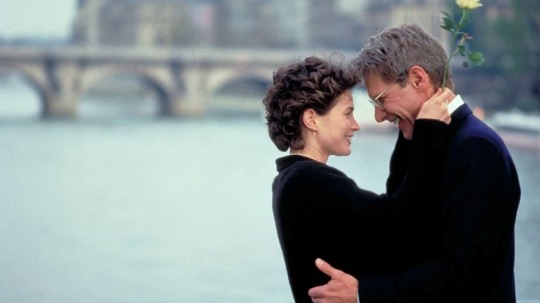
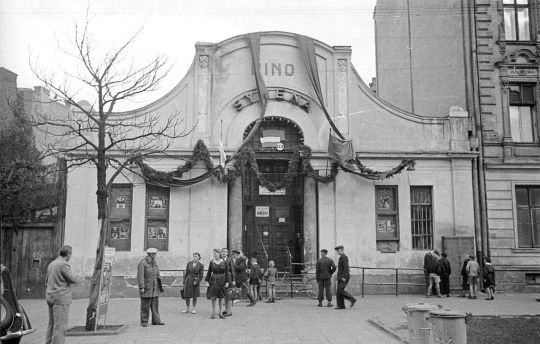
0 notes
Text
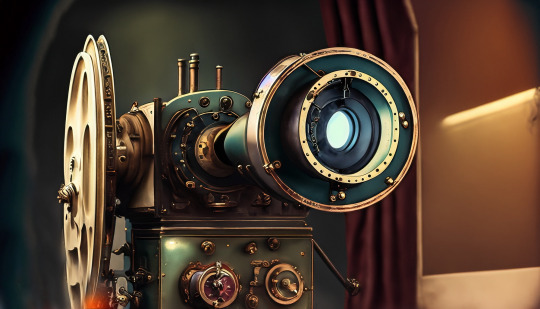
The 48 Hour Film Project kicks off tonight and I’m struck by how different the summer event is from the fall’s horror competition.
You see, there’s no preparing for the summer competition because of the number of genres involved.

Whereas in the fall it’s only the one: Horror. And in preparing for that edit last year, I spent the week leading up to it soaking in my own past. From horror comics to scary stories on my transistor radio after I was already in bed. Through Poe, Lovecraft, and King... through Vincent Price movies on TV... through Scanners, Christine, and the Exorcist. And then what we thought for sure was an actual. haunted. house. in our neighborhood. Bringing up all those fake haunted houses we'd go to in October including the one they set up below the streets Pioneer Square... that were all still terrifying.
And so on.
I soaked in those thoughts which put me in just the right frame of mind once the first batch of footage showed up midway through the shoot.
Of course the Summer competition, well, it's sort of like you're standing around when a starting gun goes off and you're just going. It's definitely a more sudden experience.
For me, the starting gun goes off once the writers release their work to the crew mere hours after the director draws two genres at the kickoff event Friday night... and selects one. So I print out that script (this is gonna be maybe 10pm, maybe 11, maybe later) and I take it over to the living room couch, and read it straight through. Then I immediately read it through again, making notes in the margins about my reactions during the first read. And then I read it through a bunch more times trying to make the story settle in my brain before I go to bed because if I cue my brain right, it'll play with the story while I sleep and who knows what insights I might have come the morning?
Seriously. Who knows???
That's my first step. The one I used, the one that's gonna be tonight.
What I appreciate about it is that it taps into pure storytelling. Actually, it taps into pure story listening. I get to be the audience I once was, riveted to the sounds creeping from my transistor radio under my bed covers.
Well... maybe not that dramatic. But certainly with the same intention. Certainly with the same focus. Certainly with the desire to absorb every element, every thread, being spun by the storytellers.
Why?
Because I'm part of the first audience to whom the writers tonight will tell their tale.
You see, it's the director and production crew's job to capture the physical, emotional, and intellectual elements of that tale. It's my job to preserve the intent of the writers and the decisions of the director and producer.
And.
It's also my pleasure to do all that and still see if there's even more to this story than what's on the page...
And what's evident to the camera.
It's an absolute thrill as an editor, as a Creative, to find something in the story that was captured...
But still undiscovered.
😊
#48hfp#48 hour film project#seattle#editor#there goes the weekend!#creative#creativity#creative process#story#storytelling#narrative#audience#producer#director#photographer
0 notes
Text
mini FMP - initial research/articles
I started my research for this project by looking at how the contemporary market for advertising and subsequently music videos is focusing more than ever into evoking feelings to the audience even if the visuals/narratives are a bit abstract. This is achieved through symbolism and using metaphors.
I was reading this article, (https://www.thedrum.com/opinion/2021/10/21/if-creatives-want-reach-audiences-it-s-time-lose-the-plot) where the author claims that especially now after the pandemic, as an audience we are “increasingly searching for something that makes us feel something, or more importantly you can lose yourself in”. I find this statement very interesting and relatable. For my project I want music to be the leaser of the narratives I present, and I want it to be the main component that pulls all the visuals together creating an ambience that evokes emotions to the viewer.
Another article that I came across that relates to this concept, mentions the process of creating a music video for a song with no beat. I had never thought of something like this until I came across the article. Stephen McNally created a non stop flowing animation to Jon Hopkins’s release “Music for Psychedelic Therapy”. McNally mentions that : “Not working to the beat was quite liberating, it made the process more about trying to follow and visually complement the shifting flows of the sound ”. He managed to create this ever flowing 2D and 3D immersive animation based on the art of Eileen Hall. What I am noticing the most in this piece of work is even if both the song and the visuals are quiet simple they manage to complement each other in a way that they create an abstract narrative that generates a whole atmosphere and evokes feelings to . the viewer.

link: https://www.itsnicethat.com/articles/stephen-mcnally-jon-hopkins-music-for-psychedelic-therapy-animation-180122
Finally I looked into the work of Vincent Haycock for the music video of “The Hills” by Leonard Cohen. Haycock mentions that he was tasked to create a mood with his visuals that would amplify the meaning of the song, while staying within a budget. The video itself is quiet otherworldly following the main character into the unknown while maintaining an aesthetic that portays the lyrics of the song in a symbolic yet relatable way. What I find interesting in this work is how through metaphors Haycock has manages to capture the feeling that the song is bringing out perfectly while creating an interesting narrative that remains open to interpretation depending on the experiences of each individual viewer.

link: https://www.itsnicethat.com/articles/vincent-haycock-leonard-cohen-the-hills-film-180620
video: https://www.youtube.com/watch?v=FesS3D-7o1g&t=3s
0 notes
Text
if i cant paint ill die.. i am my paintings.. because its the only thing i can do believe me ive tried.. i paint to stop thinking.. ive been inside a room alone all my life i need to go out and work to forget myself.. maybe god made me a painter for people who are not born yet

#my dear friend vincent.. i hope your soul is resting easily. i wish you could know how deeply your life and your paintings have touched me#context these are quotes from the film at eternitys gate which is about van gogh. and it hit me rlly hard#bc of just how it was made artistically and also because i felt like i was seeing my own mental health struggles being#captured on film..... emotional about vincent#also along w relating to his mental health struggles just relating to how he writes about art in his letters and#how hes portrayed in the film....#beep beep its a txt
11 notes
·
View notes
Text
Ikevamp headcanons after watching Hamilton
Quick disclaimer: Yes I know this is a show about people who had owned slaves and slavery is bad. Having said that there's a reason why we suspend disbelief for a couple of hours and just allow ourselves to be swept into the story. I also love Phantom of the Opera but I also am aware that this is a story that involves an abusive and toxic relationship. The point is that I am aware that there are problems that needs to be discussed, but I still love the music, the story and the shows okay. This is just fan content not meant to be taken seriously and is just for fun. Okay? Now let's proceed.
I'll be doing Will and Arthur first since I'm currently doing Shakespeare's route and was inspired to do this after MC watches Romeo and Juliet with Vincent and I was wondering how Will would react to watching Hamilton. And Arthur is here because he is my husband/main lover. I might do Mozart and Napoleon next.
SPOILER ALERT: For anyone who hasn't seen the Disney Plus version of Hamilton, there might be some spoilers here (unless you already saw the show or know the story that is).
General Scenario:
You don't know how but Le Comte was able to get the filmed version of Hamilton, a musical which you've told Sebastian that you've been dying to see but was never able to because tickets were always sold out and entering the lottery was going to be a little too expensive for someone who lives in Japan and who doesn't exactly have the money or the time to simply fly to New York if in case she won. You were also excited because apparently Le Comte was able to modify the 21st century tech room that you use for your online classes and was able to get a wide screen and high quality surround sound which made you appreciate his efforts. A part of you was also curious as to how the other residents would react. You were scared that some of them might take offense, especially Napoleon who knew one of the characters in the show in real life. Would they react weirdly for seeing people different from them portray people that they knew? You were also wondering if they might even appreciate some of the 21st century slang that you and Sebastian would sometimes slip back into whenever it was just the two of you alone. After talking it out with everyone and explaining a few more things (like how its probably going to be different since it is a series of captured pictures-or at least that's your closest analogy- being played super fast with the synchronized sound of the actors- or what you were almost tempted to call "Techno Magic") during a dinner in which Shakespeare had decided to be present in, they were actually interested in what this show is about. Napoleon convinced you that he's fine and actually someone else playing Lafayette might even help with the suspension of disbelief since its been awhile since he has last met him anyway. Will even mentioned that while he has read and heard about stories from America, this is probably going to be the first story or production he's going to see from it. The only one who showed any hesitation - to no one's surprise - was Mozart, since he is attached to the kind of music he is familiar with (aren't we all?). But after prodding from both Jean, Le Comte and you giving him the puppy eyes, he finally relents. The day comes when everyone was once again free and for practicality everyone decided to have a meal first so that they won't be hungry during the show and also for you, Le Comte, and Sebastian to explain a few things everyone else may need to know to truly appreciate the show (like how the Presidential system and elections worked during the setting, what the word "Rewind" means, what is beatboxing, etc). So finally everyone gathered into the tech room after the meal, the lights were dimmed and once everyone was settled, you hit play. And as self-predicted of you, you find yourself crying in the end.
William Shakespeare (I'm still doing his route so please don't hate me if I get him wrong. Also no spoilers please).
- He was a bit shocked at first by how exactly up close you could see the facial expressions of the actors as well as the various ways it would cut to another person. He could now understand why you struggled with trying to explain how its played in a theatre but not exactly like the theatrical experience. But as you saw in your periphery, by the time Philippa Soo sings her first line, Will had already adjusted and allowed himself to be an audience and shut off his director and actor mindset (for the most part at least).
- While he didn't specialize in musicals, he found himself paying attention to the story of "the ten dollar founding father without a father." He knows how music could help both the actors and the audience in succumbing to their emotions in a scene and to suspend disbelief from reality. In his productions the words are not overwhelmed by any score but rather complemented to bring out the emotion he wants to evoke and for actors to show. Since many parts of the show has been influenced by the spoken word style without completely removing it from being sung, he has become enlightened with how powerful a show can be when it is done right.
- He not only enjoyed the story (especially the flow of it) and the production (especially some of the more technical details that the other residents hadn't noticed as far as a stage production is concerned), he loved that even the ensemble members had good acting and some of the onstage humor. One of the meta things he enjoyed was the obvious reference to his most superstitious work.
- Once you've seen how he loves analyzing the technical details of the production, you excitedly tell him about a special member of the ensemble who is known as "The bullet" among fans of the show. You could see him being enlightened as he watches the show with you again (this time with just the two of you) and he now sees "the bullet" and the way she interacts with the characters in a whole different light. He was so impressed with this idea that he may have adapted it into one of his new original plays (its not a copy paste of Hamilton's "bullet" but he definitely adapted assigning a member of the ensemble to have a special role that may not be significant at first, but he heavily notes that this member would have to be unique in interacting with any of the other characters).
- He didn't know what to expect from a 21st Century production but he found himself impressed with the prose and writing of various raps and songs. His favorite from Act 1 in terms of rhyme schemes was "Right Hand Man" and from Act 2 it was Jefferson's rap in "Washington by your side". And after settling down a bit his favorite emotional parts were "History has its eyes on you", "Hurricane", and "It's quiet uptown".
- He was impressed with how the double roles was given and how it actually is true for both of their roles in both acts. Ambiguity is one of his favorite things to have in a work, and he gives props to Lin for all the ambiguity he later realizes was in several parts of the show. If he and Arthur had been a little bit more closer, they probably would have bonded over the ambiguity Hamilton's comma in his letter to Angelica (see kids, grammar matters).
- A part of his brain wonders how the real life Hamilton would react to this and if him and Burr would still be enemies. But after some thinking he decides its not worth his efforts of asking anyone to bring them back since a wonderful production of their life has already been made even if it may not necessarily reflect who they truly are. He of all people knew what it's like to be inspired by great figures, it was fortunate that Lin Manuel Miranda decided to make a show about them before he had the chance to.
- You explain that in America Hamilton is one of the lesser known founding fathers of their nation and how it may be because his political opponents later on became Presidents and therefore was able to form the narrative. He becomes inspired by it and begins to search out people or stories who are hidden gems who may not be historically famous but had much more interesting stories than some of the ones he has heard of.
- Afterwards once you are sure that he has gotten comfortable enough with the genre you show him various videos of people rapping to his works and his reactions range from impressed to amused to "that's not what I mean when I wrote that" and you had to calm him down and explain that they can't hear him anyway after he started giving serious critiques on what the text means.
Arthur Conan Doyle
- While he was knowledgeable about many things, America's founding fathers was not one of them. He along with the other residents have gotten used to any rumors or exaggerated accounts of their lives and you and Sebastian have already warned that this is just a fictionalized production of the real person. As a writer of some historical fiction books he argued that he of all people was aware that any work based on history will speak more about the creators rather than the actual people they are writing about most of the time. He was nevertheless interested as to why you have become fascinated with the treasury secretary (and maybe it was with a twinge of jealousy that you began to expressly show admiration to another man even if he wasn't among the residents in the mansion). After all unlike many other residents of the mansion, on the surface it seemed that Hamilton was similar to Theo who mainly played a supporting but crucial role to his brother. He was thankful that you didn't hold it against him and was comforted that you were in a similar place. You even told him that the only thing you really knew about Hamilton before listening to the soundtrack and watching "Animatics" was that he was in the ten dollar American bill.
- And as someone who has delved into writing historical fictions, this was probably one of the most entertaining productions about a historical figure he has seen. He's going to be honest with you in that at first he was wondering if revealing Burr shot Hamilton in the opening was going to hinder him from enjoying the show; but he was pleasantly surprised that this was not the case at all. As a matter of fact it now made him want to find out who the real Hamilton was (although a part of him doubts if the real Hamilton had any regrets at all). According to him, this is why as a fictionalized historical work, the show is a success because it makes you want to find out more about the events and figures of the story (even if it means looking at darker realities that they did). And while the real Hamilton may be a lot different from what was shown, with all the things he went through and all the things he has done (for better or worse), he now wonders why exactly Le Comte hadn't approached him since he seems to be no better or worse than the average resident ("He and Newt could probably discuss mathematics all day."). You then explained that his political rivals (Jefferson and Madison from the show, and Monroe who wasn't shown in the musical) had later on become Presidents and was able to shape the narrative away from Hamilton. "Ron Chernow made Hamilton's biography because he was the lesser known founding father who was fading into obscurity among Americans and Lin read the book and recognized the story of someone who has risen through his writings. And to Lin that was also the story of hiphop." While he wasn't involved in politics as much as Hamilton was, Arthur had enough experience to know what it feels like to have those kinds of people in power. He also knows just how powerful it is to be in "the room where it happened" and how sometimes the real decisions weren't being made in an office but rather in either a private party or the right bar when people in power had their guard down and were more susceptible to being influenced.
- He could relate a lot with Hamilton on many things that he's only comfortable allowing either you or Theo to see. From being just so much more aware of death's inevitability coming for every living thing to survivor's guilt even though a part of him knows its irrational (but sometimes the emotional nonsense just overtakes our perspectives and actions). It's why he could understand Hamilton's need to write as much as he can before he dies. It's why for a time in his human life he had deviated from writing about Holmes and ventured into other genres. He could also relate to the need to prove what type of person he was, and how to go beyond his tragedies to serve people in their own ways. Hamilton did it as a soldier and the creator of America's financial system. And he is doing it as an informally practicing doctor and as a writer. It's a need that he's trying to mitigate since you've repeatedly told him that he doesn't need to prove anything to you or to anyone and to write whatever he pleases. But he also can't deny that it's still somewhere lodged in the back of his head.
- Just like William Shakespeare, in terms of the wordplay found in rap and the ambiguity present in the show and how those things were executed made him amazed and momentarily speechless. He was especially fanboying about "The comma after dearest" and how this essentially shows how important grammar was. It went to the extent that afterwards whenever he would write to you he would address you either as "My dearest, Y/N" or "My darling, Y/N" with special emphasis on the comma (sometimes you could see how there's more ink in the comma than some of the actual words. That's how much he wants to emphasize that you hold the title of dearest or darling). And you excitedly share with him some of the trivia knowledge of the show (like how in real life it was Angelica who originally made the comma mistake by writing to Hamilton as "My dear, sir" in one of her letters and it was Hamilton who was asking her what the comma means and even replied with "Ma chere, soeur") and how Angelica really did reference the Icarus metaphor in one of her letters to Eliza. And even though he wasn't a major musical nerd (he sang for fun), he would now join you in watching Howard Ho's Hamilton videos musically analyzing Hamilton (and would probably try to find a way to use this knowledge to annoy Mozart in some way).
- Speaking of music: Maybe it's because he's biased in his love for you but aside from Sebastian he's probably the one who has no qualms about the hiphop genre and was immediately into the various wordplays that rapping allowed. And because of this his favorite characters in terms of rapping are the ones played by Daveed Diggs (probably more than Hamilton himself even though you've explained that Lin is the one who wrote the whole thing). He even adapts to how Daveed as Jefferson would say Isaac's third law and incorporated it into his "let's tease Newton" kit. That's when you know he really loves Daveed Diggs ("Every action has an equal opposite -" "WILL YOU PLEASE STOP SAYING IT THAT WAY?! I didn't mind the first few times but this is ridiculous Arthur" "It must be nice, it must be nice to have a Newton on your side"). And his favorite character emotionally was Angelica (her raps in Schuyler Sisters and Satisfied may have helped).
- Speaking of the Schuyler Sisters, after watching it with you another time (this time with just the two of you) one of his favorite things to say is that you've got the best of all three sisters within you (Angelica's wittiness and intelligence, Eliza's cares for the more important things in life, and Peggy's humor) with the sexiness of Maria Reynolds. But because he sees all 4 of them in you he has the benefit of not needing to choose among them. Having said that there will be a period wherein he teases you if he makes you "Helpless" or "Satisfied" (and you respond either by kissing him or singing "That would be enough").
- Whenever you would sing as one of the Schuyler sisters he will join you as any of the male characters the moment he masters the soundtrack and could even sing it without the music. His favorite rap songs are "Guns and Ships", "Washington on your side", and of course "Satisfied". He also really loves "Non-stop", "the 10 duel commandments", and "The room where it happened". But his favorite sequence is from "the Winter's Ball" all the way to "Wait for it". Since it has romance, a shocking revelation, and gives insight to the perspective of the antagonist. He's also one of the first people to attempt to learn the choreography whenever he's in one of his mental blocks in writing. Of course he makes sure not to injure himself.
- He posts song lyrics to keep himself motivated in his times of mental block "There's a million things I haven't done. But just you wait" and "I'm not throwing away my shot" frequently appear around his desk.
-And whenever he's feeling low or insecure, just like Eliza you remind him to "Look around, Look around, how lucky we are to be alive right now."
#Ikemen Vampire#Headcanons#ikemen william#ikevamp#Hamilton#William Shakespeare#Arthur Conan Doyle#Ikemen Arthur#Lin Manuel Miranda#Daveed Diggs#Philippa Soo#Ron Chernow
34 notes
·
View notes
Photo

––– 𝗰𝗵𝗮𝗿𝗮𝗰𝘁𝗲𝗿 𝘀𝘁𝗮𝘁𝘀 .
𝙵𝚄𝙻𝙻 𝙽𝙰𝙼𝙴 alycia jean wei
𝙽𝙸𝙲𝙺𝙽𝙰𝙼𝙴(𝚂) aly , aj ( ha ha )
𝙰𝙶𝙴 twenty-three
𝙳𝙰𝚃𝙴 𝙾𝙵 𝙱𝙸𝚁𝚃𝙷 november 25th
𝚉𝙾𝙳𝙸𝙰𝙲 𝚂𝙸𝙶𝙽 sagittarius
𝙿𝙻𝙰𝙲𝙴 𝙾𝙵 𝙱𝙸𝚁𝚃𝙷 los angeles , california
𝙷𝙾𝙼𝙴𝚃𝙾𝚆𝙽 los angeles , california
𝙶𝙴𝙽𝙳𝙴𝚁 cis woman
𝙿𝚁𝙾𝙽𝙾𝚄𝙽𝚂 she / her
𝚂𝙴𝚇𝚄𝙰𝙻 𝙾𝚁𝙸𝙴𝙽𝚃𝙰𝚃𝙸𝙾𝙽 lesbian
𝙻𝙰𝙽𝙶𝚄𝙰𝙶𝙴(𝚂) 𝚂𝙿𝙾𝙺𝙴𝙽 english , spanish , mandarin ( spoken only )
𝙾𝙲𝙲𝚄𝙿𝙰𝚃𝙸𝙾𝙽 cinematographer , director , film student
𝙵𝙰𝙼𝙸𝙻𝚈 michael wei ( father ) , emilie wei ( mother - deceased ) , stevie wei ( oldest brother ) , vincent wei ( older brother ) , greg wei ( older brother )
more information under the cut .
𝙰𝙱𝙾𝚄𝚃 𝙰𝙻𝚈𝙲𝙸𝙰 ,
you have known grief before you even learned the word for that feeling . you didn’t really know your mother ; lost to an aggressive battle with a disease when you were just three years old . you are told that her smile could light up a room , that her laugh could make the saddest person in the world happy , that she might look like a wallflower but she was the type of person to talk your ear off if she just as much senses that you need a distraction .
everyone talks about your mother with such tenderness , but it all feels like a bruise in your heart that will never go away because you’re the one who will never get to know her . all you have of her are pictures and old dresses , and you wish that you could remember what it is like to be held by her or to see her voice but memory is a fickle thing and you were only a child . the worst thing of all is that you can never say you love your mother unconditionally , you cannot love someone you never knew .
your father gave you a video camera for your ninth birthday and that was when your obsession began ; trying to capture every moment in your life , no matter how miniscule , so everyone you love can have more than just their memories to rely on once you’re gone . so that you will never really fade away . death scares you , doesn’t it ? it must be why you love horror movies so much . going through hell just to survive feels similar to all the emotional baggage of growing and finding yourself . and if laurie strode can survive michael myers , if sydney prescott can survive every ghostface , if sally hardesty can survive leatherface , then you can survive life , too .
you create films , show the world how exactly you see it and thankfully , your efforts are fruitful . you earned a scholarship to new york university - tisch , earned yourself an internship , your portfolio full of dedication and passion to your art . but there is still so much of the world you haven’t seen , so much yet to be experienced . so when you were offered a spot in the interchange program , you did not hesitate to grab at the opportunity . life is beautiful , you think . and you want to make the most out of it and create memories that will last forever .
𝙰𝙻𝚈𝙲𝙸𝙰 𝚆𝙴𝙸'𝚂 𝙲𝙷𝙰𝚁𝙰𝙲𝚃𝙴𝚁 𝚃𝚁𝙾𝙿𝙴𝚂 ,
beware of the nice ones : though alycia is normally cool , calm and collected , she can be ruthless and vindictive if you mess with her or the people that she cares about .
brutal honesty : she is quick to point out her opinions on other people .
camera fiend : she rarely appears without her handheld video camera .
girls are really scared of horror movies : thoroughly subverted . she absolutely loves them .
meta gal : very well versed in the horror genre and pop culture references when it calls for it .
motor mouth : when she gets on a spiel about pop culture and horror films , of course .
5 notes
·
View notes
Text
10 Favorite modern fantasy films
PAst 30 years have been an interesting time for fantasy.....So much so I didnt have room for a certain series ,but hey this is my list
Coraline
Leans more to horror side of fantasy but it definately makes me think of Wizard of Oz or Alice in Wonderland,just with the darkness more pronounced
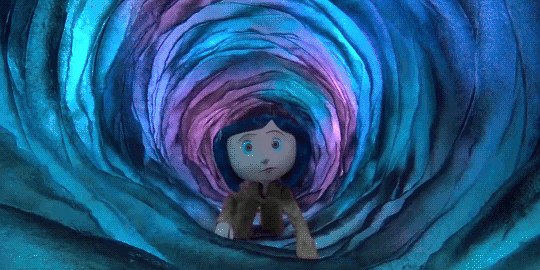
Hook
The premise of Peter Pan growing up is just a fantastic one,and add in great acting,gorgeous sets and Spielberg whimsy this is a fun film
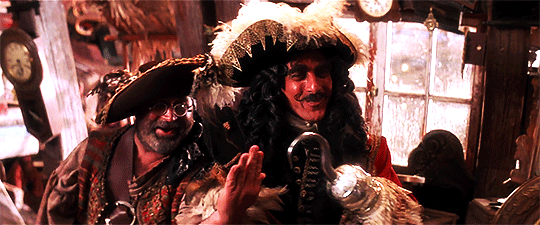
Aladdin
When it comes to animated fantasy films Aladdin is one of the first to come to mind .The Genie maybe my favorite Disney character and the film is really funny yet heartwarming.Also second favorite climax to any Disney film

Army of Darkness
This film is a genre masher.It comes from a horror series,and yet it is primarily a action comedy in fantasy framework.This is a very nostalgic film to me (I saw it at a very young age,it was one of a few R rated films my dad allowed me to watch ,the others being Terminator 2 and the Matrix trilogy ) and the tale of a shotgun and chainsaw weilding buffoon hero teaming up with nights to fight monsters and skeleton armies really captured my imagination
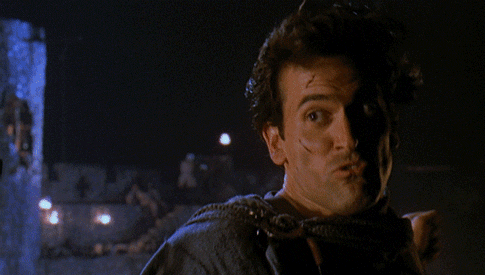
The Thief and the Cobbler(Recobbled cut)
So this is a film ruined by meddling ,so the best way to experience it is through the Recobbled cut ,which is closest to the film originally intention though imcomplete .This is one of the most unique animated films I have ever seen,as the animation that is complete is stunning,the protagonists are charming without having to say a word (Inspired by silent movie actors like Buster Keaton and Harold Lloyd ),and the villain is a rhyming Vincent Price in his final role
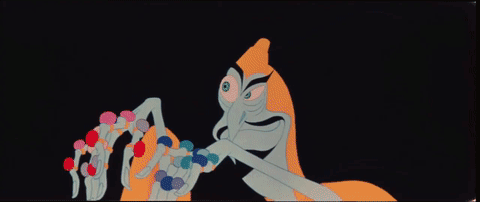
Dragonheart
I adore this movie.It’s about the relationship between a dragon and a knight that go from enemies to friends .Its not for everyone but really my only complaints are Denis Quaids accent and David Thewlis’s hair
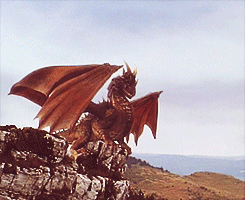
Kubo and the Two Strings
This film is beautiful,emotional,funny and just awesome .Not gonna say anything about the plot,just watch this movie !
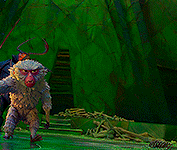
Stardust
A romantic fantasy full of lightning pirates,ghosts,witches ,living stars and it is just charming,creepy and funny .Also movie that established MArk Strong playing bad guys which I am all for
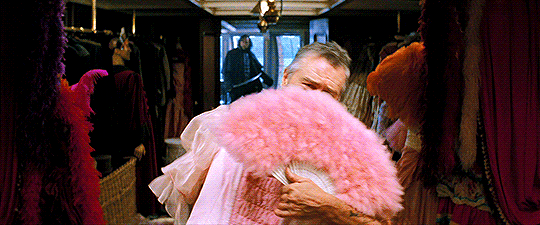
PAns Labyrinth
Fantasy combined with the horrors of reality.The Faun maybe one of my favorite creatures ever put to film

Lord of the Rings Trilogy
This trilogy is just plain epic.When I think of high fantasy,I think of Lord of the Rings

@filmcityworld1 @cinefantastiquemitho
23 notes
·
View notes
Photo

A L L E Y W A Y
NIKON FM2N - 50MM 1.2 AI
KODAK PORTRA 800
I love how this photo turned out. I walked by this alley on the way to the market and noticed the light. How it lit the building-side perpendicular to the alley. How it bounced onto upper left building face. How it glimmered on the residual water left after the light rain. I stood there for a moment. Long enough to see a man with his dog on the right side, enveloped by the casted shadow. I stood and watch him adjust the dogs collar and continue walking down the alley. With my camera up to my eye now, I composed the shot. “Vertical.” I thought to myself, as so to capture the height of the buildings. I exposed, and I depress the shutter button. The shutter snaps open, but does not close. I take my eye away from the viewfinder to peer over the top of the camera at the shutter speed dial. “1/250″, so why hasn't the shutter closed. Suddenly, the shutter closes and the mirror slaps back into position. I quickly realign the viewfinder with my eye, recompose, re-expose, and fire off another shot. This time the shutter snaps open and close without any issue. I look back up at the alley and think to myself how nice the photo will turn out.
As a photographer I feel that I am more inspired by many painters rather than other photographers. Not to say that I’m not inspired by any photographers. Though growing up and going through elementary school learning about famous painters like Vincent van Gough, Leonardo Da Vinci, and Claude Monet, still resonates with me today. I tend to have an eye for the works of many artists with a realism or impressionism style. As I look at this photo, all I can think about is how painting like it looks. As I look back at most of my film photography, the same thing can be said. I feel my photos are unique, and although I am an absolute bias perspective, I still feel that compared to a lot of photos coming from the majority of people who will claim themselves as a professional photographer, that an image like this has more quality in it. I do not claim myself to be a professional. But I am, at most times, meticulous and thoughtful in my subject choice and composition. I take great care to make as well of a photo that I can, that provokes thoughts and emotions. And at the same time, social media has made it so that people who have a larger following receive attention to their photos that are just cookie cutter to the rest of the photo media on the site. I know it is egotistical to think that I am better than those people, and I know that it is covetous to think that my photos should be receiving the same type of attention. But I know that good work pays off, and that if I continue to approach my photography in a way that is true to how I perceive the world around me, that my work will be met with recognition.
5 notes
·
View notes
Photo
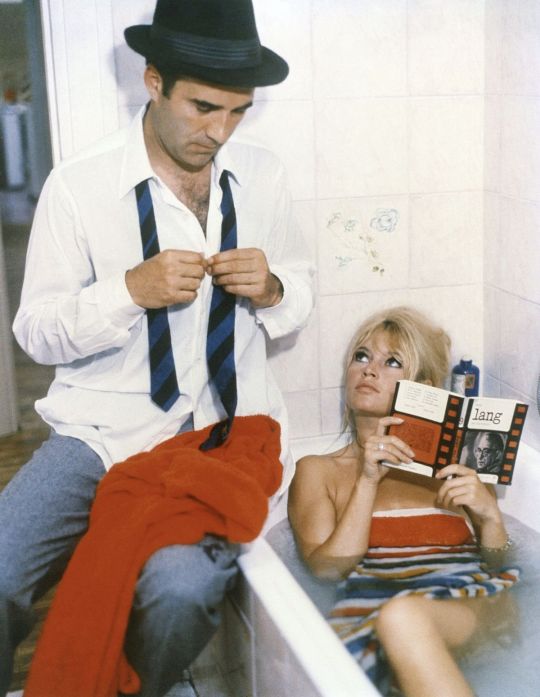
Michel Piccoli obituary
Stalwart of French cinema whose prolific career included films with Luis Buñuel, Jean-Luc Godard and Claude Chabrol
By Ronald Bergan
For more than half a century, there seemed to be one constant in French cinema – the actor Michel Piccoli. With his death at the age of 94 something vital has disappeared from the screen.
Never young looking – he was prematurely bald – Piccoli grew in maturity and power over the years, with directors such as Luis Buñuel, Jean-Luc Godard, Claude Chabrol, Marco Ferreri and Claude Sautet seeking his services more than once. He also worked for directors of the stature of Alfred Hitchcock, Henri-Georges Clouzot, Jacques Rivette, Costa-Gavras and Louis Malle.
Even when he was a big name, Piccoli was never too proud to play small supporting roles or even bit parts if he liked the screenplay. But whatever the size of the role, whether playing a goody or a baddie, Piccoli would bring to the character a gravitas (with a tinge of humour) and an ironic detachment, simultaneously revealing a real, recognisable human being beneath the surface.
Piccoli was born in Paris to a French mother and an Italian father, both of them musicians – his mother was a pianist; his father a violinist. At 19, he made his screen debut in a walk-on part in Sortilèges (1945), directed by Christian-Jaque.
After several roles in the cinema and theatre, he met Buñuel. “I wrote to this famous director asking him to come and see me in a play. Me, an obscure actor! It was the cheek of a young man. He came and we became friends.” Piccoli appeared in six of Buñuel’s films, usually cast as a silky, authoritarian figure.
His first performance for Buñuel was as a weak, compromised priest trekking through the Brazilian jungle in La Mort en Ce Jardin (Death in the Garden/Evil Eden, 1956). In Diary of a Chambermaid (1964), he was the idle and lecherous Monsieur Monteil, sexually obsessed with Jeanne Moreau as the maid Célestine.
Just as louche was his smooth bourgeois gentleman who persuades a respectable doctor’s wife (Catherine Deneuve) to spend her afternoons working in a high-class brothel with kinky clients in Belle de Jour (1967). Piccoli reprised the role charmingly almost 40 years later in Manoel de Oliveira’s Belle Toujours (2006).
He was discreetly charming as the Marquis de Sade in Buñuel’s La Voie Lactée (The Milky Way, 1969), subtly overbearing as the home secretary in The Discreet Charm of the Bourgeoisie (1972) and sinister as a prefect of police in Buñuel’s penultimate film, Le Fantôme de la Liberté (The Phantom of Liberty, 1974).
In the 1950s, apart from his one film with Buñuel and his appearance as María Félix’s jealous lover in Jean Renoir’s French Cancan, Piccoli was cast mainly in run-of-the mill “policiers”. During this period, Piccoli was part of the Saint-Germain-des-Prés set in Paris, which included the writers Boris Vian, Jean-Paul Sartre and Simone de Beauvoir, and the café singer Juliette Gréco, to whom he was married from 1966 to 1977. He was also an active member of the French Communist party.
The 60s was his most creatively exciting and varied decade. His first leading role (with Serge Reggiani and Jean-Paul Belmondo) was as an unscrupulous gangster in Jean-Pierre Melville’s Le Doulos (The Finger Man, 1962).
This led to one of his best remembered parts, as Brigitte Bardot’s husband in Godard’s Le Mépris (Contempt, 1963), in which he plays a screenwriter, willing to sell his wife to a producer (Jack Palance) in order to get his script filmed by Fritz Lang. In a homage to Dean Martin’s character in Vincente Minnelli’s Some Came Running, Piccoli wears a cowboy hat in the bath.
As memorable as this image was the name of the character he played in Jacques Demy’s Les Demoiselles de Rochefort (The Young Girls of Rochefort, 1967). As Simon Dame, he is continually being greeted as Monsieur Dame (a joke that works only in French), and is rebuffed by Danielle Darrieux, who cannot bear the thought of being called Madame Dame.
It was in 1968 that Piccoli met Ferreri, who starred him in Dillinger È Morto (Dillinger Is Dead), a bleak study of alienation, in which a man’s life is laid bare. Piccoli is brilliant as an industrial designer who, while spending an evening at home, making himself a meal, watching TV and seducing the maid, decides to kill his wife and go to Tahiti.
It was the first of seven films the actor made for the Italian-born director, the most infamous being La Grande Bouffe (Blow Out, 1973), an excessive film about excess, where Piccoli as a TV personality, along with a pilot, a judge and a chef, all bored with life, literally eat themselves to death.
Piccoli’s few roles in English language films were less than challenging: they included his secret agent in Hitchcock’s Topaz (1969) and the suave card dealer in Malle’s Atlantic City (1981).
He was much happier in France, where his talents were not only respected but revered. His several films for Sautet showed him as a complex and flawed hero, starting with Les Choses de la Vie (The Things of Life, 1970), in which he played a man who, although having an affair, finds himself still attached to his estranged wife, his son and friends, and consequently unable to make the absolute commitment his lover requires.
In 1973, Piccoli formed a production company which kicked off with that year’s Themroc, directed by Claude Faraldo, in which he played a factory worker, living in a squalid flat with his mother and sister, pursuing an existence of repetitive routine and urban grind, before he rebels. What made this biting social satire particularly unusual was that language was abandoned completely, with the characters having to communicate in a series of formless noises, something Piccoli does particularly effectively.
Piccoli then returned to his speciality – the urbane bourgeois – in Chabrol’s blackly comic Les Noces Rouges (Blood Wedding, 1973), where he played a mayor’s deputy having an affair with his boss’s wife. In Godard’s Passion (1982), he was a factory owner whose wife is having an affair with a film director.
He gave three of his largest and most impressive performances in his late 60s and 70s. In Malle’s Milou en Mai (Milou in May, 1990), he is the ideal repository of all the director’s sympathies, the upholder of the best of traditional country values, unambitious, unacquisitive and a lover of nature, in contrast to his greedy middle-class family gathered for a funeral.
Rivette’s La Belle Noiseuse (1991) cast him magisterially as a famous artist trying to capture a new nude young model on canvas. In Oliveira’s Je Rentre à la Maison (I’m Going Home, 2001), Piccoli struck a personal and poignant note as an actor trying to deal with old age, and refusing to compromise his principles.
He shone in what amounted to almost a cameo as the courtly but bumbling elderly relative of the Duchess of Langeais (Jeanne Balibar) in Rivette’s Ne Touchez Pas la Hache (Don’t Touch the Axe, 2007), a version of Balzac’s novel on erotic obsession.
For the English language The Dust of Time (2008), Theo Angelopoulos’s last film, Piccoli joined such stalwarts of European art cinema as Bruno Ganz and Irène Jacob in a love triangle that covers the latter part of the 20th century. Despite some of the stilted dialogue, Piccoli bares the soul of a character whose sufferings include his internment and escape from a gulag.
He dominated every moment as a reserved and modest cardinal who panics when elected pontiff in Nanni Moretti’s semi-satire Habemus Papam (We Have a Pope, 2011). The first close-ups of him, when he realises he has been appointed the new pope, suggest, with subtle expressions, emotions ranging from surprise, humility, ambivalence, excitement and then horror.
In Vous N’avez Encore Rien Vu (You Ain’t Seen Nothin’ Yet, 2012), Alain Resnais’ intriguing, self-reflective examination of actors and acting, film and theatre, Piccoli, playing himself, is the doyen in a cast of leading French actors of the day.
He directed the features Alors Voilà (1997) and La Plage Noire (The Black Beach, 2001), the former winning the Critics’ prize at Venice, to add to the many prizes he had won as an actor. It was appropriate that when Agnès Varda filmed One Hundred and One Nights for the centenary of the cinema in 1995, she cast Piccoli as Monsieur Cinema.
He was married three times. His first two marriages, to Eléonore Hirt and to Gréco, ended in divorce. He is survived by his third wife, the screenwriter Ludivine Clerc, whom he married in 1978, and by his daughter, Anne-Cordélia, from his first marriage.
• Michel Piccoli, actor, born 27 December 1925; died 12 May 2020
© 2020 Guardian News
Daily inspiration. Discover more photos at http://justforbooks.tumblr.com
39 notes
·
View notes
Text
Irréversible Analysis
Hello, everyone! Lately, I have been watching a lot of movies portraying psychological violence. For the past few weeks, I’ve watched several different movies regarding such genres. Personally, out of all of them, there was one that really stood out to me. This movie is known as Irréversible (2002), which was directed by Gaspar Noé.

Before I go on, let me just warn those who haven't or wish to see the movie. I will be analyzing this film in grave detail. Proceed reading this blog in caution.

Firstly, let me explain the premise of the movie, as well as the director's intent on the film. Irréversible follows a man named Marcus and his friend Pierre seeking revenge, after Alex was raped and beaten into a coma. Vincent Cassel plays Marcus who is the boyfriend of Alex, who is played by Monica Bellucci. Le Tenia is Alex’s rapist and is played by Jo Prestia. Albert Dupontel plays Pierre, who is not only Marcus’s friend, but also Alex’s ex boyfriend.

A unique aspect about this movie is that it is told in a reversed chronicle order. Therefore, all of the events leading up to Marcus and Pierre killing Le Tenia are told backwards. The movie initially starts off with Pierre brutally killing Le Tenia, and it ends with Marcus and Alex getting ready for the party. When pitching the story of Irréversible, Noé intended for the story to be told in reverse. This idea came from capitalizing off of Christorpher Nolan’s film Memento due to its popularity.
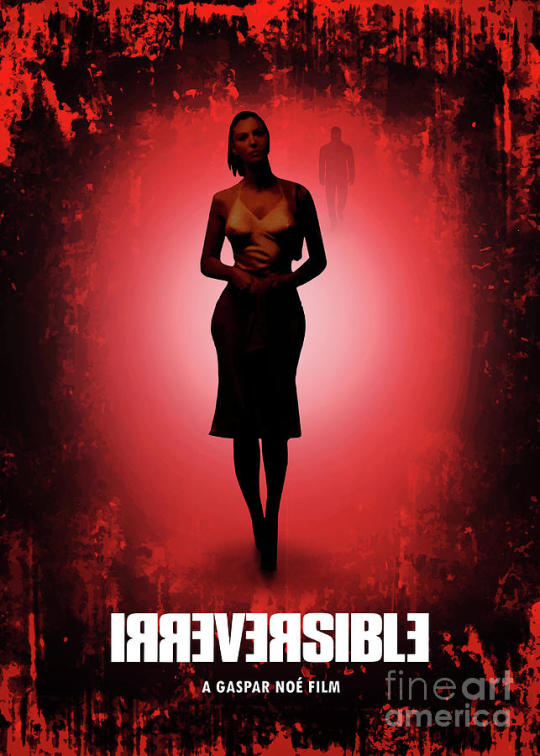
Irréversible sparked huge controversy because of it’s violent nature. A lot of movie critics felt that this movie was incredibly grotesque and extremely homophobic. The majority of the film contained scenes that emotionally and physically emphasized the effects of being a victim of rape. For instance, during the 10 minute long rape sequence, the entire scene displayed an violently detailed sexual assaults' within one single shot (42m:56s - 54m:01s).
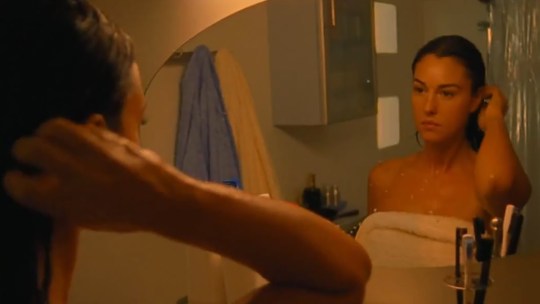
During which, Le Tenia violently rapes Alex and beats her into a coma. This entire sequence shows exactly everything happening from start to finish. Personally, as a woman, it did make me feel quite uncomfortable watching Alex go through such trauma. This scene captures the brutal reality of being a rape victim, and the camera captures every moment of Alex’s distress. Therefore, watching her go through this did make me feel quite squeamish. It felt as if I could feel Alex’s pain within that very moment. Especially, considering that events such as this actually happen to women in real life.
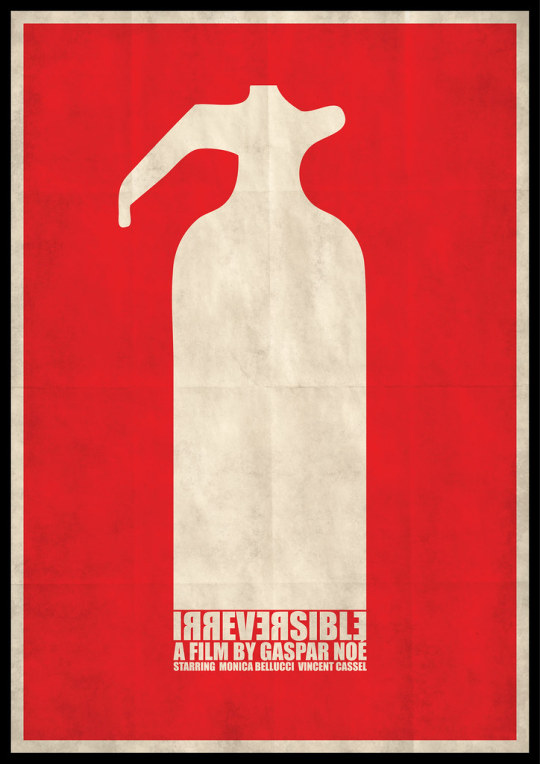
A scene that I found to be quite captivating yet visually appealing was the fire extinguisher scene (22m:17s - 24m:04s). During this scene, Marcus finds Le Tenia and begins to fight him. However, Le Tenia gets the upper hand and attempts to rape Marcus. Suddenly, Pierre beats Le Tenia with a fire extinguisher to death by crushing his skull with it multiple times.
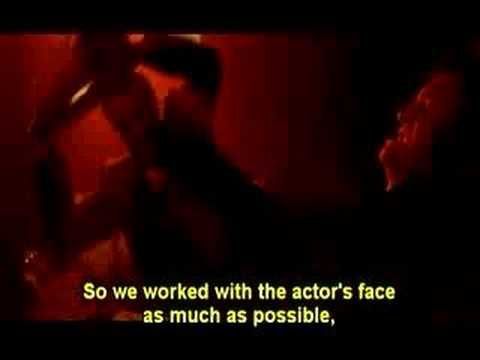
Most critics find this scene to be incredibly overrated because of how gruesome the scene is. As well as that, many feel like this scene creates a negative impression on the LGBTQ community. This is because this scene takes place in a homosexual bar, and most of the patrons appeared to be incredibly pervasive and overly sexualized. The setting also has an ominous undertone because of the color, lighting, and types of individuals present. Also, Marcus and Pierre would often refer to the patrons as ‘faggots’ which is an offensive term to the LGBTQ community. Furthermore, because this scene is within the first act of the film, it may implicate that Le Tenia was a victim of a hate crime. Until, it is learned that Le Tenia is exactly a sex addict and a violent rapist. This type of narrative may have made some audiences feel like it was painting a bad picture on homosexual males.
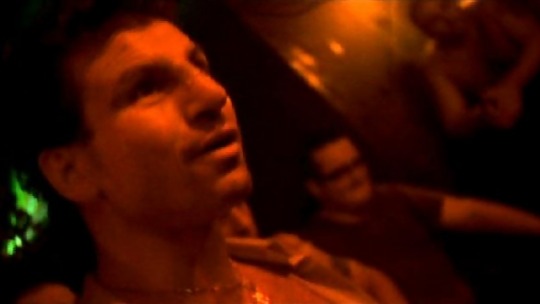
On the other hand, I don’t feel that wasn’t the intention when developing Le Tenia’s character arc. When first watching it, my initial thought was who was Le Tenia, and why were those men looking for him. Then, I began to observe Marcus’s behavior and studied his movements and language. I could tell that he was incredibly emotionally disturber and was probably not sober. Marcus also had an irrational thought process and was quick when making rash decisions. However, once Le Tenia is found, I began to realize that he must have done something for Marcus to be incredibly provoked. After watching it, it made me want to learn more about why this happened in order to understand the men’s actions. Despite it being incredibly violent, I do feel that this sequence does capture the attention of an audience because of how aggressively obscure it is.
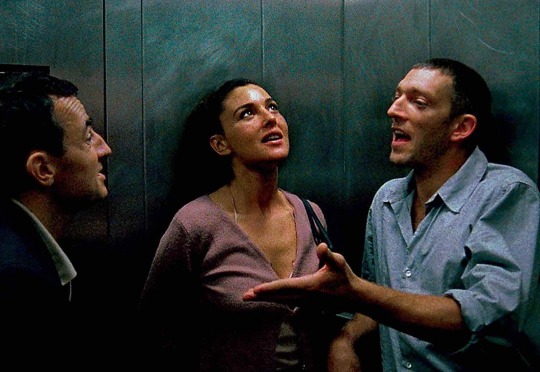
Another sequence that stood out to me was the party scene (54m:03s - 1h:06m:27s). Although this scene is not very notable nor is it violent, it does highlight the three characters Marcus, Pierre and Alex. During this scene, we get to know more about the characters personalities, before they went through such traumatic yet disturbing events.

Honestly, considering how appalled Marcus was about Alex’s attack, it was a shame to see him flirting with other women behind Alex’s back. With that in mind, I do want to acknowledge the fact that he was in fact drinking that night. Which could imply to why he was acting disorderly throughout the film. This could also explain his flirtatious behavior towards the other women. As far as Pierre, his role in the movie was quite undetermined for a while. Throughout most of the movie, he was more level headed and in control of the situation. He didn’t seem as distraught as Murcus; however, this particular scene does further emphasize the reason for him killing Le Tenia. Once we learn that Pierre was Alex’s ex boyfriend, he begins to show how much he really cares about her and loves her as the story continues. Pierre is devastated that Alex is with Marcus; especially, because he knows that Marcus isn’t good for her. Once I realized more of his feelings towards Alex, it reveals the deeper emotional trigger beneath Marcus killing Le Tenia.

Despite all of the violence presented in this movie, I do feel that it was a stunning representation of how deep connections can prone someone into harming others. The storyline overall was incredibly suspenseful and full of anticipating excitement. Honestly, I don’t feel that this movie’s purpose was to make a negative stereotype out of the LGBTQ community. Instead, I feel that this movie highlights how rape can affect not only an individual, but also the people around that individual. It also reflects on how one man’s decisions can cause their actions to come right back at them. Overall, I feel that this movie deserves a five-star rating.
0 notes
Text
Few simple changes that I think could've saved Solo A Star Wars Story as a movie
Just a few things I think could’ve improved Solo
Anthony Ingruber plays Han Solo. He looks like Harrison Ford, he talks like Harrison Ford, and he even played a young Harrison Ford in the film Age of Adaline. Anthony Ingruber had even audition for the role of Han Solo and the fact he didn’t get it for a guy who had so much trouble, they needed to bring in an acting coach. Alden was so unconvincing as Han it was laughable. Anthony Ingruber was the perfect person to play Han and he should’ve been Han Solo. If Anthony played Han, it could’ve been as great as Donald’s take on Lando.
Han Solo picks his own name. Han is a rebel without a cause. He doesn’t care where he came from, so a random Imperial Officer should not be given Solo his last name. This is Han’s story, he should tell the officer that he’s Han Solo. Han not calling himself Solo was a really bad sign.
No L3-37, Qi’Ra and no Maul. Qi’Ra derailed Han as a character(I’ll explain more later), L3 really served no purpose and her being inserted into the Falcon is both fridging and takes away from Han making the Kessel Run and Maul served no purpose to be in a movie about Han Solo when Han does not believe in the Jedi or the force
Replace Qi'Ra with Sana Starros. Danai Gurira plays Sana
Focus more on Han Solo as a character. The problem I had with the movie is it focuses on everyone but Han and was just showing how he gets his things
Keep in the Imperial Cadet deleted scene in. It shows Han is a good pilot, that Han wanted to do the right thing while his time in service, but the Empire cares more about equipment than lives. In a sense, Han begins as optimistic and happy before and during his time with the Imperials, and then when we meet him after he's been an Imperial for a while, he's thoroughly beaten down by it and that's what turned him into the cynical bastard we saw at the start of New Hope.
Change the Battle of Mimban to Battle Of Kashyyyk. Reason? This is where Han would save Chewie. I always loved the Legends take where Han's superiors wanted Chewie dead, but instead Han saves Chewie. So here, we would soon realize that the Empire is here to beat down a Wookie Rebellion. Han is tasked by his superior officer to kill the captured Chewnacca. Han chooses to save Chewie and stuns his superior officer. Han and Chewie flee the planet and that's when Beckett's crew picks up Han and Chewie
Han is mentored by Beckett and it makes him the callous and cold smuggler we know him to be in A New Hope. Their relationship is similar to Fast Eddie and Vincent in Color Of Money
With no Qi’Ra, Beckett’s connection to Vos would introduce us to Lando
Focus more on Han and Lando’s friendship. Show us why Han and Lando have a strong friendship, show don’t tell. Have Han and Lando being smugglers in arms. And finally Lando would not leave he would patch himself up and return to help Han in the end. We really needed to see why Han sees so much reverence in his friendship to Lando in ESB. What we got from Solo makes Lando’s betrayal unsurprising. We needed to see why Lando was willing to sacrifice an old friendship to save Bespin from the Imperials, the emotional weight of Han and Lando’s friendship wasn’t there in the movie, it needed to be there so their friendship should’ve been one of the core elements of the movie.
Make Dryden Vos more of a legit threatening villain. Paul Bettany used to play really fucking evil gangster characters and that’s what I was hoping Dryden was going to be playing, but he was barely there. Make him cruel, and a clear danger. Prior to the meeting, show him execute an underling for insubordination and have him say “sorry for the mess” and show us that Beckett is in a horrible debt that he can’t seem to get out of, a mirror of Han and Jabba’s relationship in the future
The heist would be to steal Coaxium from a complex security vault on Kessel
Han and Sana would get “married” as a pretense for the big heist, while Lando and Chewie make the big score.
Han would make the Kessel Run in less than twelve parsecs on his own. Han needed to make the Kessel Run on his own. Having a droid being part of why he made the Kessel Run takes away the great feat that Han made and brags about in ANH. It shows he’s a great pilot and has what it takes. That’s kinda what we needed to see.
Beckett sells everyone out to Vos as per canon
When Vos has Han at his mercy, Lando comes to make the save and they kill Vos together
Han shoots Beckett first. But not because it was right or because of the money. Because Han saw it coming. Han learned everything from Beckett. Beckett would say “I would’ve done the same thing, kid.” and Han would say “I had a great teacher.” There needed a slight moral conundrum. Han respects Beckett and has learned a lot from him, but also knows that he absolutely can not be trusted and will inevitably kill Han without a care in the world if it means Beckett gets a better deal.
Han would only give Enfys Nest the Coaxium in exchange for a reward. So Enfys would give Han, Lando, Sana and Chewie enough stolen money the Marauders acquired throughout the years to be the perfect reward. Enfys asks Han to join the Rebellion, but Han makes it clear he’s in it for the money
The movie would end with Han and Lando playing Sabacc for the Falcon, maybe tweak it a little so it’s both a dice and card game, so that way Han uses the Dice we would see in TLJ to win the Falcon. This way it makes way more sense as to why Leia and Ben would feel emotional over the dice. It’s the lucky Dice that won the Falcon, it brought Han and Leia together and it’s something worth Ben feeling emotional about instead of Han’s jilted ex lover’s dice
Han should end the film leaving him as a guy who is mostly only going to get involved in capers due to the money. So that we can still make sense of the scene in ANH in which he takes the money and leaves (on Yavin) but only afterwards has a strike of conscience and returns to help Luke.
Solo wasn’t really a bad movie, I think it is a fun movie with great potential. The problem is they focused more on the future and not in the now, a movie about Han Solo does not focus on Han Solo and it’s not necessary at all and the story is very forgettable, and it really is just a cash grab. There is nothing remarkable about the movie and the only two characters who stand out as 100% only enjoyable to me are Enfys Nest and Lando. The rest of the characters just feel like unnecessary adds or barley passable imitations. So these are ways I would change Solo to make it a great movie
They made the movie about everything BUT Han Solo and their attempts to make Han a good man just betrays the character we knew in A New Hope. The reason why I chose to cut out Qi'Ra is because Han Solo having a love interest in my opinion was a pretty poor choice. Han Solo was always implied to be a loner before Leia came into his life. His name is SOLO. Han is a criminal smuggler, if anything he would've been sleeping around like Captain Kirk, especially Han in his 20's. Hell, in a deleted scene for ANH, Han basically has a small fling in the Cantina. As a matter of fact, showing that he was this intimate with someone before Leia takes a little bit of the mystique away from their relationship in later movies. I also felt like Han and Leia worked because they were the only ones who would get under each other's skins, but with here, Han and Qi'ra are just kind of in a relationship at the beginning and it's like "oh we don't even know these people" seeing him so deeply affected over another woman makes Han Solo comes across as a little bit more vulnerable than the Han we met in A New Hope.
Also why even have Qi'Ra when it's established that Han already had a wife in canon? Kathleen Kennedy sure does love her white Brunnettes doesn't she?
As for Maul. Does it need saying? Maul died in Rebels and bringing him back was pointless since mainstream audiences do not know that he survived. Also Han does not believe in the force and believes a blaster is superior to a Lightsaber
This whole movie shows a far more human Han, he's shown to be somewhat empathetic and sympathetic of others. He gives too much of a damn, there's a time or two in Solo where Han chooses to do what's right as opposed to what's right for him, he does jobs without looking for a real reward and that's just not Han Solo. In this movie it's clear that Han has a moral compass, whereas in the original trilogy, he was a lot more morally ambiguous and it was through Luke and Leia's influence and place in life that he began to become good. In A New Hope he had to constantly be reassured that he was going to be preciously rewarded. This completely destroys Han's arc in the original trilogy as this movie implies that Han was always a good guy.
#Star Wars#Han Solo#Solo A Star Wars Story#Lando Calrissian#Solorissian#Sana Starros#Chewbacca#Tobias Beckett#Drydon Vos
4 notes
·
View notes
Note
Hello, I am sending these questions to a few selected bloggers that I like and you are one of them, I'd like to hear your answers ❤️
-What's the last thing you did that made you feel proud of yourself?
- Favourite Ship?
-If you could grant one wish to another person, who would that be?
--One personal trait you like having?
-What's a movie you feel deserves more love?
-What's a song you need people to hear at least once?
- Favourite TV show?
Thank you so much 💕💕💕 this is probably the best anon ask I've ver got and I am giddy with happiness that you like my random ramblings and daily thirsting out loud rituals 😅
The answers to your questions-
- I made my neighbours baby smile today. I count is as my biggest achievement this week.
- Favourite ship... Definitely Stucky and Evanstan. Nope. I am not going to choose one between them. I CANNOT.
-If I could grant any one person a wish... It would have to be an environmentalist or a peace activist. Somebody who is level-headed, intelligent and thinks of the greater good. About the future of the whole mankind. But right now, I'd probably say a medical professional or scientists who have been working so hard during this whole pandemic and probably could find a way out sooner if the government and authorities weren't being such tools.
- I would say that compassion and creativity are the two traits I love having, and feel very grateful for.
- Movie that deserves more love - Before We Go (2014). Not saying that just cause it's a Chris Evans movie. But because it is so gorgeous. One of my favourites, really. Maybe because I am a romantic who doesn't mind some cliches. Two strangers and the discussions of love, uncertainties, compromise and closure in their respective lives. There have been movies like this before too, but this one has a fresh approach to that same old idea. It is more Heartwarming. Intimate. A small film with a big heart 💙
- A song that I need people to hear: Vincent (Starry, Starry Night) by Don McLean.
I have been obsessed with this song for years now. Still am and will always be. I need everyone in the world to know this piece of beauty. Seriously, if you haven't listened to this song you don't know how much you're missing out on. The raw emotion, the pain, the wistful melody that asks a question with each line and the brilliant lyrics, acoustic guitar notes which capture the essence of Van Gogh's tragic story and the suffering of an artist better than millions of books could.
For they could not love you. But still your love was true. And when no hope was left in sight, on that starry, starry night...You took your life, as lovers often do. But I could have told you, Vincent...This world was never meant for on, As beautiful as you.
Favorite TV show -
I can't choose. Really. I am so bad at picking favorites. But off the top of my head, I'll say Black Mirror. Though I have binge-watched Breaking Bad one too many times. The Wire, too. F.R.I.E.N.D.S is a given in my comfort watch list, so is the office and schitt's creek. There was a time when I used to be deeply invested in Suits 😅
2 notes
·
View notes
Text
Cottagecore Films (pt. 11)

A Little Princess (1995)
starring Liesel Matthews, Liam Cunningham, Vanessa Chester, Eleanor Bron
synopsis
I was extremely disappointed in this film, to put it lightly. The story itself was beautiful, but that is thanks exclusively to the novel on which it was based. The movie itself utterly failed to convey the magic and timelessness of the book. The acting was flat, emotionless, and forced at every point, from every actor (except for maybe Cunningham, but he was absent for half of it). One would think a gaggle of girls would have some form of natural chemistry, whether pulling them together or apart, but not a single child actor portrayed even the remotest semblance of a relationship to another. (Note: I describe in my review of Pan’s Labyrinth what quality acting from a child looks like, for reference.) Even Matthews and Cunningham could not pass a believable father-daughter relationship, despite the story being about that. As far as emotional acting, the adults were just as bad as the children. They couldn’t even feign a single moment of joy, sadness, or anger, regardless of the context. I actually laughed for the entire scene during which Sara nearly died because of how bad the acting from the adults was. At least Chester seemed somewhat worried; Bron and the nameless police officers stood around so vacantly it looked like they forgot what was happening. I really was appalled by the abysmal acting, especially when so much was handed to them in the story. I want to preface my next point by saying that yes, I know computer animation was still a work in progress in the 90s. But this was horrifyingly awful. I have never once, not in my entire life, seen CGI as terrible as the monster in Sara’s stories. I nearly gave up on the entire movie within the first five minutes because of that monster. And it kept showing up, which absolutely ruined whatever favor I tried to hold for this movie. If you don’t have the budget, which this film clearly didn’t, don’t try to animate a monster. It’s that simple. I wish I had more words for it but it was truly so atrocious that I’m at a loss. Any good will I hold for this movie is due to my fondness for the story (no credit to the film), the settings (while not exceptional, they were fairly pretty), and Liam Cunningham’s acting. 2/10
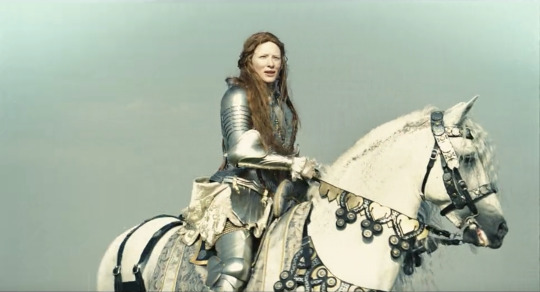
Elizabeth: The Golden Age (2007)
TW: blood, mild gore, torture, racism against indigenous people
starring Cate Blanchett, Geoffrey Rush, Clive Owen, Abbie Cornish, Jordi Mollà, Samantha Morton
This film is the sequel to Elizabeth (1998) (see part 10 of my film reviews), which continues the story of Queen Elizabeth I as her rule progresses. Tensions between Catholic Spain and Protestant England grow ever greater, escalating to treasonous plots and assassination attempts. Mary Stuart, Queen of Scots, and King Philip II of Spain conspire to depose Elizabeth and place Mary on the throne, restoring Catholicism as the national religion. Even as these events lead to war between the two superpowers, the court provides no sense of stability as new faces and new stresses surround the Virgin Queen. She forms a strong friendship with the pirate Walter Raleigh upon his return trip from the New World, where he seeks to establish colonies under the English flag. However, his stay is extended greatly when Elizabeth’s selfishness and pride take over, and are only broken down in the face of battle when she puts him at the forefront of the British navy. Outnumbered, Elizabeth will need Raleigh’s loyalty and cunning, along with the unwavering loyalty of her people, if they wish to survive the Spanish onslaught.
While still a drama, this film proved to be much more war-oriented than its predecessor, but I’m not sure it did either as well. I liked the deeper look this film gave us into the Elizabeth’s mind, especially with her social and emotional conflicts. They remind us that she is still human, despite the somewhat cold appearance the first film gave her at the end. She is more mature, and even more prideful, but there’s still a limit to what she can take as a person. I think the first film gave a better portrayal of her complicated mind, but this was a solid continuation of what years of ruling can do. I also liked how much detail they put into Raleigh’s character, which the first film didn’t do as well with its secondary characters. We got to know more about him, even if he did still feel somewhat surface-level. I think the dramatic aspects could have felt more high-stakes than they did, especially for the characters who were actually in danger. Even though so many characters were actively committing treason, I only felt that level of tension with one: Mary Stuart. Her death was particularly elegant and laden with symbolism, and even though I knew the outcome historically the scene still delivered the anxiety it was meant to. The others simply didn’t have the same delivery. Even the assassination attempt didn’t project any kind of concern, regardless of one’s historical knowledge. The war focus was a fairly different take than the first had, which I appreciated. The film established a strong balance between the tensions in England, Scotland, and Spain, and did a good job making the stakes very clear for each group. Given the uncritically positive stance on England that this film takes, I would have expected the film to villainize Spain a little more to form a stronger dichotomy between the two rulers, but Spain was presented rather neutrally to the audience. The Spanish ruler and nobles didn’t have much character, despite being the antagonist. As for that uncritical positivity regarding England, I do have a bit more to say. Although to an extent it makes sense that the film would lean in favor of England, given its content and the point of view from which the story is told, it became overbearing at times. England could do no wrong in this film, despite children dying in battle, indigenous people being humiliated and dehumanized for show, talk about slavery, and a complete disregard for the suffering of non-white and non-Protestant groups. In contrast, the first film heavily criticized England, from Mary of Guise shaming Elizabeth for sending young children to war, to Elizabeth frowning upon Walsingham’s torture methods (granted she never stopped them, but she didn’t approve as readily as she did in this film), and so on. Although England in truth did all of these things without rebuke, the film could have handled it more gracefully and came across less like propaganda, at the very least. 5/10
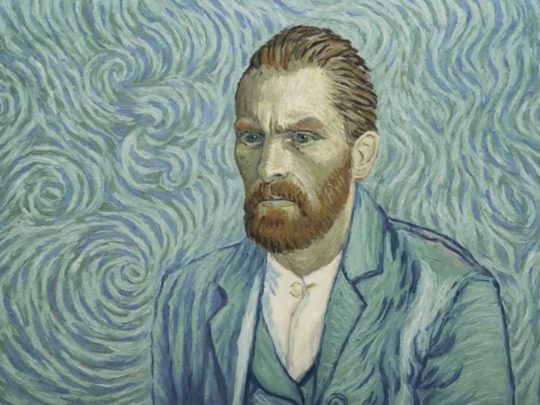
Loving Vincent (2017)
TW: suicide (action offscreen, death onscreen)
Sensory Warning: movement of the impressionistic paintings can be very disorienting for those with sensory processing difficulties. I had to break from watching multiple times so as not to become ill.
starring Douglas Booth, Eleanor Tomlinson, Jerome Flynn, Robert Gulaczyk
This fully hand-painted animated film follows Armand Roulin, a young man with a severe temper, on his way to deliver Vincent Van Gogh’s last letter to a living recipient. When he reaches the town where Vincent died, he begins speaking to a variety of villagers with their own stories about the artist, and their own theories about how he died. Armand tries to piece the puzzle together, wondering if the death was not a suicide as claimed, but rather something more sinister.
This film was spectacularly breathtaking. The amount of work that went into painting every scene was awe-inspiring, and definitely sets the bar high for any other films of its kind. The team of artists that created this film represented Van Gogh’s unique art style exquisitely through their loving application of oil-based paints, and truly brought to life the emotion he put into his works. I wish I hadn’t struggled so much with the constant movement, as I feel I would have been able to appreciate the film in its entirety better, but as it was I struggled to pay attention to the story because the art style consumed too much of my sensory processing capabilities. As for the story, I thought it was interesting, but I found it lacking despite the incredible artwork. Foremost, after some cursory research, I discovered that the homicide theory on which this film was based was only acknowledge by one individual, and spurned by hundreds of others. Although the film leaves the verdict open-ended, both to Roulin and to the audience, the story itself seemed to lean into the homicide theory, then completely give up on it with no resolution, so it came across as fairly noncommittal. I won’t argue for or against the theory, as I don’t know nearly enough about Van Gogh to assert an opinion, but I’m somewhat unsettled by the amount of weight it gave to it without any kind of evidentiary support, only to dump it as if the writers changed their mind themselves. The pacing was also slow for a murder mystery, which is basically what the story turned out to be. I would much have preferred the film to cover Vincent’s life, or even the days/weeks leading up to his death, instead of only featuring him in other people’s flashbacks. This kind of existential impressionism should capture the life of its creator, not the mundane views of people who didn’t understand him or even hated him. There wasn’t anything wrong with the film, per se, but I wish the writing was given as much love as the art was. 7/10
Part 1 // 2 // 3 // 4 // 5 // 6 // 7 // 8 // 9 // 10
#cottagecore#gardencore#naturecore#flowercore#cozycore#historical drama#period drama#art film#film#film review#movie#movie review#activities#mine
16 notes
·
View notes